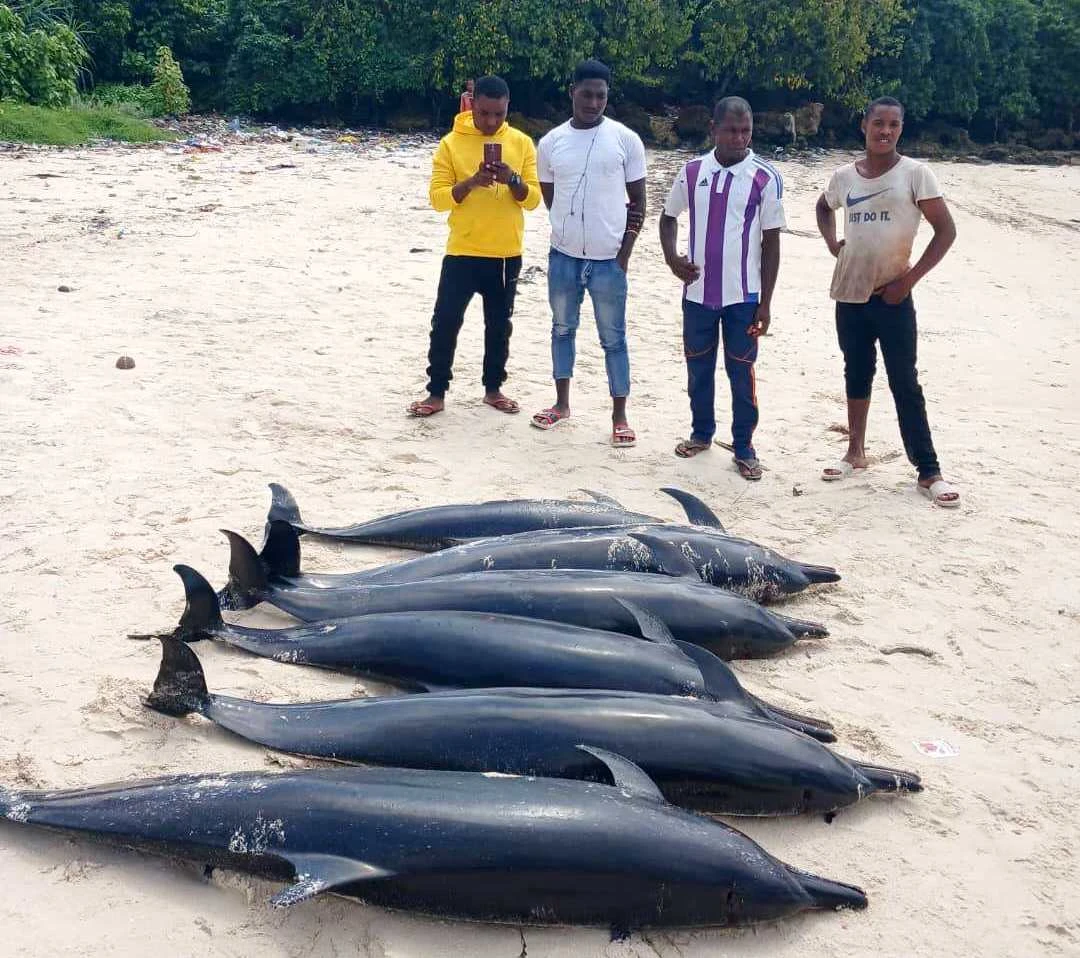Fishing boats, warming seas throw dolphins outside map

HUNDREDS of dolphins have been rescued after being stranded on a Pemba Island beach owing to noise pollution by fishing boats and warmer territorial waters than is usually the case.
Dr Makame Omar Makame, the Marine Conservation director for Zanzibar, said in a telephone interview yesterday that seven dolphins died after being stranded on the beach, while the pod of around 400 dolphins was guided by marine rangers from the Fisheries and Blue Economy ministry back into deeper waters.
The ‘stranded dolphins’ spectacle occurred at the Vumawimbi Beach stretch in Micheweni District, Pemba North Region, after losing their sense of direction on Monday night.
Dolphins losing their way at sea is not uncommon, although such incidents are rare in the Zanzibar archipelago, he said, hinting at natural factors like warmer seas and specific disturbances like noise pollution.
“Dolphins navigate using echolocation, so they rely heavily on their senses. Sometimes, changes in weather conditions or underwater obstacles can confuse them and lead them into shallow waters, where they become stranded and cannot rescue themselves without specialised assistance,” he explained.
Dolphins may also follow prey such as sardines and small marine creatures to the shore, which depending on circumstances can result in them getting stuck on the beach, he elaborated.
The large fish species can become stressed if they suffer from illness or old age when travelling in pods, while loud noises or underwater explosions from ships can disorient dolphins as they are highly sensitive to sound, he stated.
Upwards of five months ago two dolphins were stranded on the Matemwe shoreline in Unguja North, later rescued and released into deeper waters, he said, pointing at the crucial role of underwater noise in disorienting dolphins or whales, another type of migrating large fish.
It is important to minimise activities that may cause distress to various types of large fish scaling the seas in herds or sizeable groups as in this case, he said.
Ocean-related development projects need to be designed to reduce stress on marine life, he stated, pointing at the presence of dolphins near the seashore as indicating a healthy ocean and good environmental conditions.
It shows that the sea has sufficient food sources like fish and other marine organisms that dolphins feed on, he said, highlighting their economic importance, as many tourists visiting Zanzibar enjoy dolphin watching.
This provides employment opportunities for local youth who are hired for such sight-seeing tours, he said, stressing the need to protect dolphins as they are vital to the marine ecosystem.
Despite being a migratory population they are essential to the islands’ tourism sector and the wider economy, he said, while Ali Khamis Faki, an eyewitness who took part in the rescue, said they spotted the dolphins while returning from a fishing trip at around nine, early at night. They raised the alarm and then helped with rescue efforts, he said.
The operation began at nine and proceeded until dawn, he said, pointing at the need for communities to work together during such incidents as dolphins are economically vital.
“These animals are good friends to humans and pose no harm. Dolphins are even used in intelligence work,” he added.
Top Headlines
© 2025 IPPMEDIA.COM. ALL RIGHTS RESERVED






















